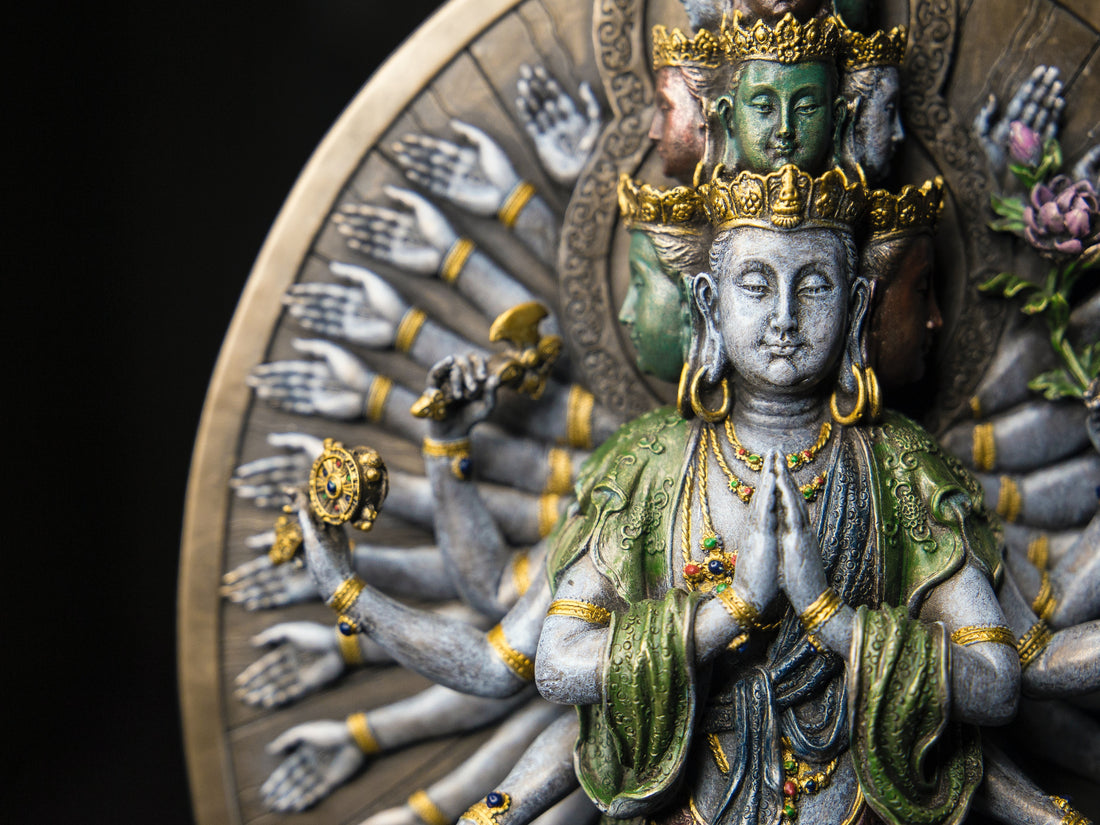One of the basic liturgical texts in the Zen world is a chapter from the Lotus Sutra titled “Universal Gateway,” or more precisely, “The Universal Gate of Bodhisattva Avalokiteshvara.” In most Zen temples, it’s chanted every other day (alternating with another Lotus Sutra chapter, “Lifespan of the Tathagatha”). It’s beautiful.
It’s also challenging. Over and over again, it describes some terrible circumstance, then says that by “mindfully invoking the power of compassion” (really, “Avalokiteshvara,” but Avalokiteshvara is the embodiment of compassion—she is compassion), the hardship will end. Some of those are fantastical—as one example, it tells us that if you “meet evil creatures, poison dragons, or various demons,” and if you mindfully invoke the power of compassion, then “none will dare to harm you.” That’s great, but it’s also removed from our ordinary lives (well, mine anyway).

But other threats are far more real: torture and execution, imprisonment, natural disasters, things people face today and have always faced. These are the moments in the text that give people pause. It feels wrong to say that mindfully invoking the power of compassion will free someone from bondage or oppression, because we know it’s just not true. It can feel insensitive to say something like that, like we’re saying, “Oh, you’re oppressed? You just need to cultivate compassion.”
But I don’t think that’s the message here; I don’t think that was ever the message. I hear two teachings here, both of which I turn to almost every day. The first is that we are never completely powerless. We usually talk about responses to danger as “fight or flight” (or sometimes “fight, flight, or freeze”). This is about a fourth option. There is indeed no way out of a particular circumstance; there may be no way to fight back, no door to get out, nothing to do but endure. But in those moments when we feel trapped—perhaps especially in those moments—we can still try to resist the natural impulse to contract, to divide the world into us vs. them, to let go of hope for ourselves and others.
And we should notice, it doesn’t say to “mindfully unleash the power of compassion.” This isn’t about having some kind of power or state of mind. It is simply an invitation, in the most difficult of times, to turn to compassion. Do not forget about it. To keep it in sight.
The second teaching I hear is that compassion is non negotiable. Period. It makes perfect sense to wonder if compassion has its limits. What about racism? Abuse? Surely there’s a point when compassion stops and something else starts. Maybe we hold this doubt because on some deep level, even an unconscious level, we have come to believe that compassion is a kind of weakness, that it’s soft. But nothing could be further from the truth. Compassion is about acting, not about being acted upon. Compassion is the thousand arms of Avalokiteshvara, helping beings in every direction. Those arms can feed, they can push back, they can protect, they can console. They can do whatever is needed.

We would never suggest that wisdom has limits, that there’s someplace or some situation where it no longer belongs, yet with compassion, we wonder. Wisdom sounds like discernment, like making good choices; compassion sounds like non-discernment, like refusing to make a choice at all. But Buddhist teachings talk about wisdom and compassion as being inseparable, like two sides of a single sheet of paper, just two faces of the same thing. To see with the eyes of wisdom is to see with eyes of compassion—there’s no gap.
“When living beings suffer hardships, burdened by immeasurable woes”—and you know your own woes, and you know the woes of others—“mindfully invoking the power of compassion can relieve the suffering of the world.” Not instantly, not completely, and not without pain. But ultimately, yes. Because what else is there? Compassion isn’t magic. It’s just the best of all options.


